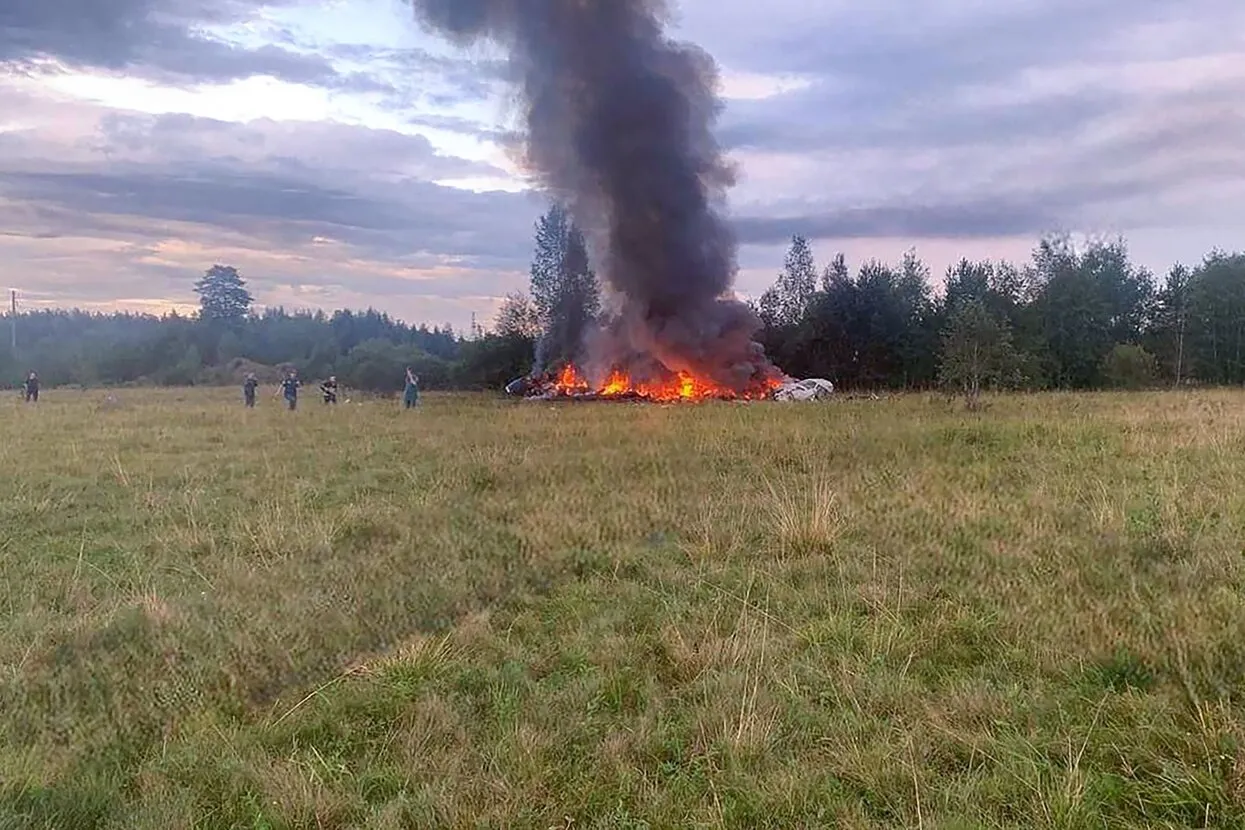
The other founder In addition to Yevgeny Prigozhin, the Tver plane crash appears to have killed the man who gave Wagner Group its name
On the evening of August 23, a private jet belonging to Yevgeny Prigzohin crashed in Russia’s Tver region. The country’s Emergency Services Ministry reported that 10 people died in the crash, including three crew members. According to Russia’s Federal Air Transport Agency, the list of passengers onboard the aircraft included Yevgeny Prigozhin and Dmitry Utkin. Meduza briefly outlines the life of the latter, whose callsign was the inspiration for Wagner Group’s name.
Dmitry Utkin (callsign “Wagner”) first started participating in mercenary operations in 2013. Before that, according to the St. Petersburg outlet Fontanka, he served as a lieutenant colonel in a GRU special forces brigade based in Pskov. Utkin reportedly chose his call-sign out of sympathy for the ideology of the Third Reich (Richard Wagner is considered to have been Adolf Hitler’s favorite composer). Acquaintances of Utkin have spoken about his Nazi views in the past.
After retiring from active duty, Utkin and other former security officials went to Syria, where they fought on the side of President Bashar al-Assad as part of Slavonic Corps, a Russian mercenary group. In October 2013, the mercenaries narrowly avoided getting surrounded by rebel forces and were forced to return to Moscow. The group’s leadership was later sentenced to three years in prison for engaging in mercenary activity.
Almost immediately after returning to Russia, Utkin went to Ukraine, where he led his own group of mercenaries, a detachment that was dubbed Wagner Group. In the spring of 2014, the Slavonic Corps veterans appeared first in Crimea and later in the Donbas, where they fought alongside pro-Russian separatists. According to the news site Gazeta.ru, Wagner forces may have been responsible for the deaths of several field commanders of the self-proclaimed Luhansk People’s Republic.
In 2015, “Wagner” and his squad returned to Syria after undergoing training at a specially equipped base in the Krasnodar region, according to RBC.
Utkin first appeared in the public sphere on December 9, 2016, when he was spotted at a televised Kremlin reception celebrating Heroes of Fatherland Day. Putin spokesman Dmitry Peskov confirmed that Utkin was among the guests.
In 2021, the Ukrainian authorities charged Utkin with violating the country’s territorial integrity. According to investigators, he took part in combat operations in the Donbas “by prior agreement with officials of the Russian Armed Forces and under their supervision” between July 2014 and March 2015. “In January–February 2014, his detachment engaged in heavy fighting against ATO [Anti-Terrorist Operation] units in the Debaltseve direction. During the fighting, the Wagner state-run nonprofit organization was directly subordinate to the commander of the 2nd Army Corps, the Lieutenant General of the Russian Armed Forces,” read their statement.
Utkin has commanded Wagner Group throughout Russia’s full-scale invasion of Ukraine, and it’s highly likely that he has traveled there himself. As of the beginning of June 2023, Utkin was officially still a commander of the paramilitary group, according to statements he made that were published by a Wagner-affiliated Telegram channel.
It’s unclear what role Utkin played in the armed rebellion Prigozhin staged against the Russian Defense Ministry in June 2023. According to a source close to the occupation authorities in the self-proclaimed Donetsk People’s Republic who spoke to Reuters, however, Utkin may have led a column of Wagner fighters on their march towards Moscow.
In July, Utkin and Prigozhin jointly addressed a group of Wagner Group fighters in Belarus, according to the independent outlet iStories. The speech was Prigozhin’s first public one since his failed rebellion and purported departure to Belarus.
A video of the speech appeared in Wagner-linked Telegram channels on July 19. In it, Prigozhin said that Wagner Group fighters intended to make Belarus’s army into the “second best army in the world,” and that they would side with Alexander Lukashenko in the case of an armed conflict. He then said that the mercenaries would not be in Belarus for long and that they would soon return to Africa and Ukraine.
“This isn’t the end; it’s just the beginning of the biggest job in the world, which will be carried out very soon,” added a voice that resembled Utkin’s. “Well, and welcome to hell,” the voice added in English.
Story by Elizaveta Antonova